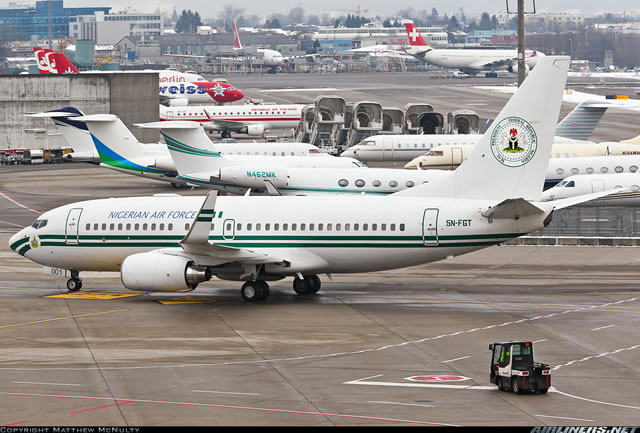The proposed N55 billion allocation for the maintenance of the presidential fleet in the 2025 budget has sparked outrage and condemnation from opposition parties and concerned citizens. The allocation, embedded within the Ministry of Aviation and Aerospace Development’s total budget of N105.9 billion, earmarks funds for a comprehensive overhaul of three aircraft engines, fuel costs, fumigation, air navigation services, cleaning, and other routine maintenance procedures. This substantial sum has raised eyebrows given the prevailing economic hardships faced by many Nigerians and has ignited a debate about the government’s spending priorities. Critics argue that such a lavish expenditure on the presidential fleet represents a misplaced priority and a blatant disregard for the struggles of ordinary citizens.
The breakdown of the aviation ministry’s budget reveals allocations for various agencies, including the Nigerian Meteorological Agency, the Nigerian College of Aviation Technology, the Nigerian Safety Investigation Bureau, and the Nigerian Airspace Management Agency. However, it is the substantial allocation for the presidential fleet that has drawn the most scrutiny. The proposed expenditure follows a pattern of significant spending on the presidential fleet. Records indicate that between July 2023 and September 2024, at least N19.43 billion was spent on the fleet’s maintenance and operations, with N13.55 billion disbursed in 2024 alone. This consistent high level of spending reinforces concerns about the government’s fiscal prudence and its commitment to addressing more pressing national needs.
Further examination of the budget document reveals specific allocations for various aspects of the presidential fleet’s maintenance. N8.65 billion is earmarked for the repair of air navigational equipment, while N5.51 billion is allocated for the overhaul of one aircraft engine. An additional N3.13 billion is set aside for overhauling two other engines. Furthermore, N1.55 billion is proposed for aircraft fuel costs, N1.26 billion for general aircraft maintenance, N149 million for security operations, and N7.5 million for cleaning and fumigation services. A substantial N311.15 million is also allocated for aircraft insurance premiums, which are likely to be handled by foreign insurance companies due to the limited capacity of local insurers to cover such specialized risks.
The proposed expenditure has elicited strong reactions from opposition parties and civil society groups. The Peoples Democratic Party and the Labour Party have voiced their disapproval, questioning the necessity of such a large allocation, particularly given the existence of a recently acquired Airbus A330. The Labour Party has condemned the allocation as an “inhuman and satanic act,” arguing that it represents a misplaced priority in a nation grappling with widespread poverty and inequality. Critics contend that the government’s focus should be on alleviating the suffering of its citizens rather than indulging in extravagant spending on luxury aircraft.
Civil society organizations have also joined the chorus of condemnation, accusing the administration of profligacy and a disregard for the plight of ordinary Nigerians. They argue that the proposed expenditure on the presidential fleet reflects a misplaced sense of priorities and a failure to address the fundamental needs of the populace. The Centre for Anti-Corruption and Open Leadership has characterized the allocation as a “national shame,” urging Nigerians to demand greater accountability from their leaders. The organization emphasizes the need for the government to rethink its spending priorities and prioritize the welfare of its citizens.
The public outcry extends beyond political and civil society circles, with ordinary citizens expressing their dismay and frustration. Many question the rationale behind such a significant investment in the presidential fleet while basic necessities remain out of reach for a large segment of the population. Some have expressed skepticism about the government’s commitment to addressing the economic hardships faced by ordinary Nigerians, arguing that the proposed expenditure reflects a disconnect between the ruling elite and the realities on the ground. The controversy surrounding the N55 billion allocation highlights the growing demand for greater transparency and accountability in government spending, as well as a renewed focus on addressing the pressing needs of the Nigerian people.


